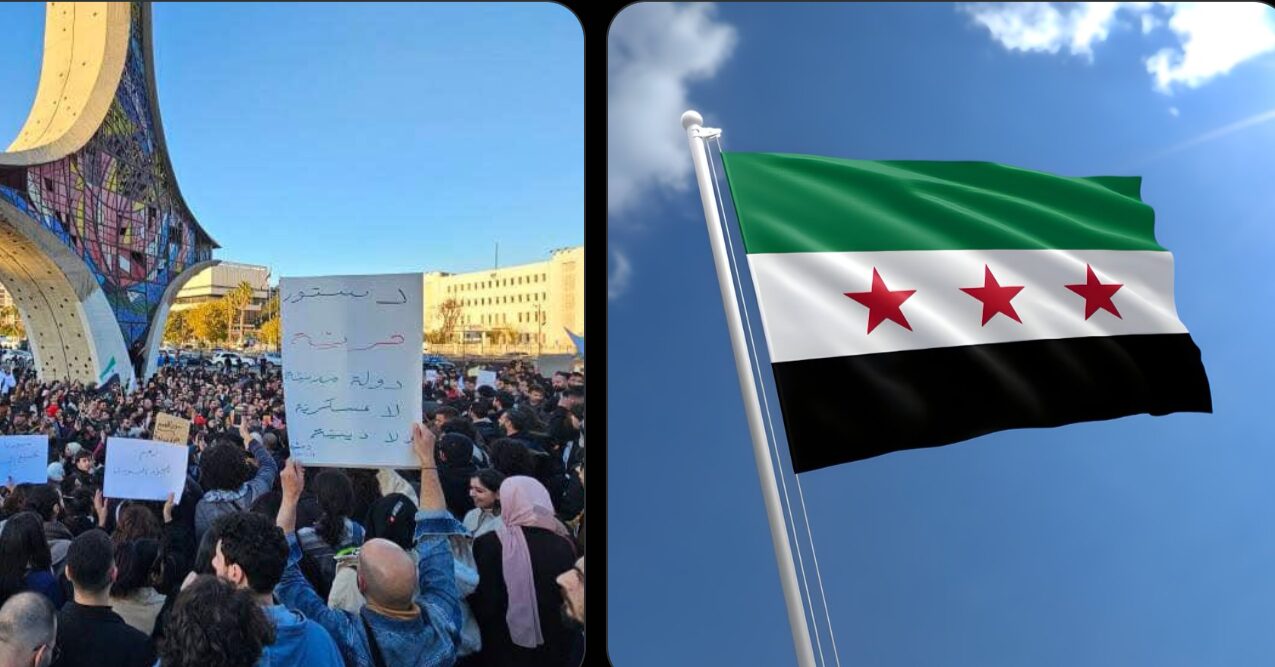Romania Coup Update: The Largest Nationalist Party in Romania, AUR, Announces “The Biggest Protest” on January 12 to Demand Free Elections
In a dramatic development in Romania’s political landscape, the largest nationalist party in the country, the Alliance for the Unity of Romanians (AUR), has announced plans to hold what it is calling “the biggest protest” in the nation’s recent history on January 12, 2025. The protest is aimed at demanding free and fair elections amid growing allegations of political manipulation and government overreach. This move comes amid ongoing tensions surrounding the alleged coup attempt in Romania, with AUR positioning itself as a central player in the growing movement calling for significant political reform.
AUR’s Call for Free Elections
AUR, a party known for its strong nationalist platform and populist rhetoric, has become a major force in Romanian politics in recent years. The party, which has gained significant support from citizens disillusioned with the status quo, has been vocal about its opposition to the current government and its handling of key political and economic issues.
The protest, set to take place in the heart of Bucharest, the capital of Romania, is being framed by AUR as a demand for democratic integrity and the restoration of free elections in the country. AUR leaders have stated that the Romanian political system has been increasingly compromised, with corruption, manipulation, and foreign influence undermining the will of the people.
“Romania deserves better,” AUR spokespersons have declared, calling on citizens from all walks of life to join the protest and stand for their right to choose their leaders in free and transparent elections. This bold declaration is not only a direct challenge to the Romanian government but also a clear indication of AUR’s growing political clout and influence.
Background of the Alleged Coup and Political Tensions
The announcement of the protest comes in the wake of growing political tensions in Romania, particularly regarding the alleged coup attempt earlier in the year. Reports of a conspiracy involving elements of the Romanian government, foreign agents, and political elites attempting to seize power through undemocratic means have sent shockwaves through the country’s political establishment.
The details of the alleged coup remain murky, with conflicting reports from government officials and opposition parties. Some claim that a faction within the Romanian government had been planning to undermine the legitimacy of the upcoming elections through various means, including the manipulation of vote counting and the suppression of opposition voices. Others point to foreign interference in Romanian politics, with claims that certain external actors may have been involved in attempts to sway the political outcome.
For AUR and its supporters, these allegations have only strengthened their case for reform and the need for a complete overhaul of Romania’s political system. The party has been steadfast in its call for transparency and accountability, arguing that the alleged coup attempt highlights the deep-rooted issues of corruption and illegitimacy within Romania’s political structure.
The “Biggest Protest” on January 12
AUR’s announcement of the “biggest protest” on January 12 marks a critical moment in the growing opposition to Romania’s political establishment. The protest is expected to draw tens of thousands of people from across the country, with AUR mobilizing its supporters through social media, local chapters, and grassroots efforts.
The party’s leadership has indicated that the protest will not only demand the resignation of key political figures believed to be involved in the alleged coup, but also call for the immediate establishment of a neutral election commission to ensure that upcoming elections are free from manipulation. AUR has also called for broader electoral reforms to address concerns about the fairness of Romania’s political system.
The protest is expected to be a highly charged and emotional event, with nationalist and populist rhetoric taking center stage. AUR leaders have framed the protest as a last stand for Romania’s democracy, portraying the ruling political elites as corrupt and out of touch with the needs of the people.
As the January 12 protest approaches, many Romanians are closely watching the developments, with some expressing support for AUR’s call for free elections and others questioning the motives behind such a large-scale demonstration. While AUR enjoys significant backing from nationalist segments of Romanian society, critics argue that its populist stance could deepen political polarization and instability.
The Impact on Romania’s Political Landscape
The upcoming protest has the potential to reshape Romania’s political landscape in significant ways. If the demonstration garners widespread support, it could force the Romanian government to respond to the growing calls for reform, potentially leading to a reshuffling of the political elite and a greater emphasis on transparency in future elections.
Additionally, the protest could increase AUR’s visibility and influence within the country’s political establishment. With their calls for free and fair elections, AUR’s leadership is positioning itself as the main opposition force, and the protest could serve as a rallying cry for other opposition parties and civil society groups. AUR’s rise is also likely to have ramifications for Romania’s foreign relations, particularly with the European Union, which has long been critical of Romania’s record on corruption and democratic governance.
At the same time, the protest is likely to exacerbate existing divisions within Romanian society, with the ruling government and AUR supporters likely at odds over the issue of democratic legitimacy. The polarization surrounding the protest could have long-lasting consequences for Romania’s political stability, especially if it leads to an escalation of protests or even violent clashes between opposing factions.
Romania’s Electoral Future
The issue of electoral integrity is at the heart of AUR’s campaign and the January 12 protest. In a country with a history of electoral fraud, corruption, and foreign influence, AUR has made it clear that the upcoming elections must be held without interference. The party’s focus on securing free elections is a rallying point for many Romanians who feel that their voices have been ignored by the political establishment.
Romania’s electoral system has been criticized for being susceptible to manipulation, particularly with regard to voter fraud, irregularities in vote counting, and the concentration of political power in the hands of a few elites. The demand for free elections, therefore, resonates with a wide section of the Romanian population who are disillusioned by the status quo.
The outcome of AUR’s protest on January 12 will likely have significant consequences for Romania’s electoral future. If the protest succeeds in forcing the government to make concessions, it could pave the way for a more transparent and democratic election process in the future. However, if the protest fails to achieve its goals, it could lead to further disillusionment and unrest, potentially destabilizing Romania’s already fragile political environment.
Conclusion: A Crucial Moment for Romania
The announcement of AUR’s “biggest protest” on January 12 represents a critical moment for Romania’s democracy and political future. With growing allegations of corruption and the threat of foreign interference, the protest is a call for transparency, free elections, and a fair political system that reflects the will of the people. Whether or not AUR’s protest will lead to meaningful political change remains to be seen, but it is clear that Romania is at a crossroads. The events of January 12 will be a defining moment in the country’s ongoing struggle for democratic integrity and political reform.

















Post Comment